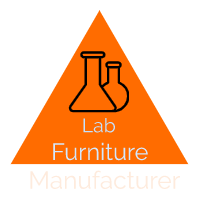Table of Contents
Understanding the Unique Stressors in Laboratory Work
Before we can address solutions, it’s crucial to recognize the distinct pressures lab workers face:
Experiment Pressure: The need for reproducible results and the fear of failure
Time Constraints: Balancing long experiments with personal life
Isolation: Long hours alone or in small teams
Competitive Environment: Pressure to publish and secure funding
Safety Concerns: Handling hazardous materials and potential accidents
Precision Demands: The need for extreme accuracy and attention to detail
Ethical Dilemmas: Navigating complex ethical issues in research
The Impact of Lab Work on Mental Health
These stressors can lead to various mental health challenges:
- Anxiety and depression
- Burnout and emotional exhaustion
- Imposter syndrome
- Sleep disorders
- Substance abuse as a coping mechanism
Innovative Strategies for Mental Health in the Lab
Mindful Lab Practices
Incorporate mindfulness into your daily lab routine:
- Experiment Meditation: Before starting an experiment, take a moment to center yourself and set intentions
- Mindful Pipetting: Use repetitive tasks as an opportunity for mindfulness practice
- Lab Walk: Take mindful walks around the lab, focusing on your surroundings and physical sensations
Reframe the Failure Narrative
In science, “failures” are often stepping stones to breakthroughs:
- Keep a “failure journal” to document lessons learned from unsuccessful experiments
- Celebrate the learning process, not just the results
- Share “failure stories” in lab meetings to normalize and learn from setbacks
Time Blocking for Work-Life Harmony
Implement a structured approach to time management:
- Use the Pomodoro Technique, adapting it to lab work (e.g., 50 minutes of focused work, 10-minute break)
- Schedule “deep work” sessions for complex tasks, free from distractions
- Set clear boundaries for when work starts and ends, even if experiments are ongoing
Create a Supportive Lab Culture
Foster an environment that prioritizes mental health:
- Establish regular check-ins focused on wellbeing, not just project progress
- Implement a buddy system for emotional support and safety
- Organize team-building activities outside the lab setting
Ergonomic and Sensory Considerations
The physical environment significantly impacts mental state:
- Invest in ergonomic lab equipment to reduce physical strain
- Use blue-light filtering glasses during late-night lab sessions
- Create a calming break area with plants and natural light
Stress-Busting Micro-Breaks
Integrate quick stress-relief techniques into your lab day:
- Box Breathing: Practice 4-4-4-4 breathing between experiments
- Progressive Muscle Relaxation: Tense and relax muscle groups while waiting for centrifuges
- Visualization: Use imagery to “reset” your mind during breaks
Cognitive Restructuring for Lab-Specific Thought Patterns
Address common cognitive distortions in scientific work:
- Challenge “all-or-nothing” thinking about experimental results
- Reframe “catastrophizing” about potential lab accidents
- Develop a growth mindset about skill acquisition in new techniques
Nutrition for Cognitive Function
Fuel your brain for optimal performance and stress resistance:
- Stock the lab fridge with brain-boosting snacks (e.g., nuts, berries, dark chocolate)
- Stay hydrated with a dedicated lab water bottle
- Consider supplements like Omega-3s and Vitamin D, especially for those with limited sun exposure
Movement as Medicine
Counteract the sedentary nature of lab work:
- Set reminders for regular stretching, especially for neck and wrists
- Use a sit-stand desk for computer work
- Organize “walking meetings” for discussions that don’t require lab presence
Digital Detox in the Lab
Manage the overwhelming flow of digital information:
- Implement “no-phone zones” in sensitive lab areas
- Use apps to block distracting websites during focused work periods
- Practice “tech-free” lunch breaks to encourage real connection with colleagues
Implementing a Lab Mental Health Program
To create lasting change, consider implementing a comprehensive mental health program:
Mental Health First Aid Training: Equip lab managers and team leads with skills to recognize and respond to mental health challenges
Regular Wellness Workshops: Bring in experts to address topics like stress management, sleep hygiene, and work-life balance
Anonymous Feedback System: Create a safe way for lab workers to voice concerns and suggestions
Flexible Work Arrangements: When possible, offer options for flexible hours or remote work for writing and data analysis
Mentorship Programs: Pair junior researchers with senior staff for guidance and support
Mindfulness Room: Designate a quiet space for meditation and relaxation
Conclusion: Cultivating Resilience in the Scientific Community
The pursuit of scientific knowledge doesn’t have to come at the cost of mental wellbeing. By implementing these strategies and fostering a culture that values mental health, we can create laboratories that are not only productive but also psychologically safe and fulfilling.
Remember, taking care of your mental health is not a distraction from your work—it’s an essential component of scientific excellence. As we push the boundaries of knowledge, let’s also advance our approach to researcher wellbeing, ensuring that our labs are environments where both science and scientists can thrive.




